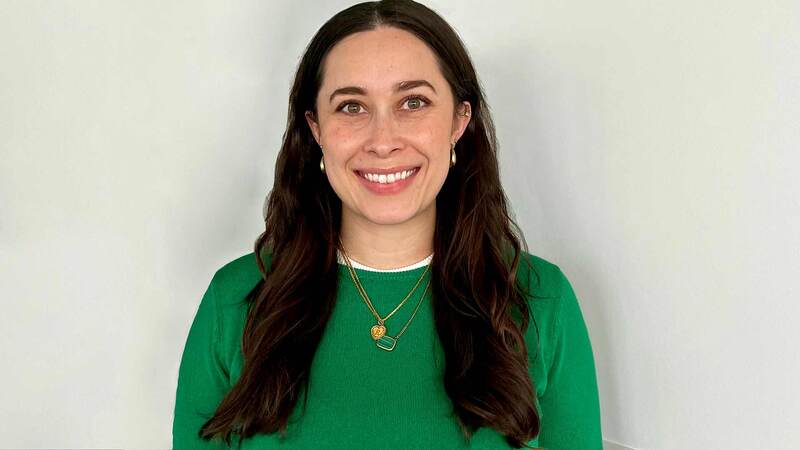You are viewing your 1 free article this month. Login to read more articles.
Fighting survivor bias
When we only hear stories of success, our vision of publishing becomes deeply flawed.
My grandmother used to tell me that empty vessels make the most noise—a proverb she used mainly to get me to stop worrying about the girls who used to bully me at school but later used to caution me against being too loud, in case others perceived me as ignorant. Fair, I think, as anyone who talks to me for long enough will discover that I can only name about five British prime ministers, three of which were in office this year. However I’ve learned recently that while empty, and often spiteful, vessels make the most noise, the vessels that make the most noise are the ones that get to control the narrative.
Over the summer I lost my voice, metaphorically speaking, and fell into a deep depression which I have dubbed my sad girl summer. I did a lot of soul searching, a lot of evaluation of the industry and my place in it. Whether I was deserving, tenacious or bookish enough to stay. Whether I would be able to survive long term in an industry where at my highest salary to date, I was still trying to catch off-peak trains in to save money and always running for my train home because we couldn’t afford the additional hours of childcare. Whether I could keep going on in a line of work where people value how things appear on the surface more than how they feel from within. If I loved the process of making books more than my sanity and self-esteem. I really, seriously, contemplated leaving the industry entirely.
Over time I realised that what I went through during my sad girl summer is not uncommon. It is actually terrifyingly normal. It’s just very few people talk about it. Some keep their heads down and carry on as if nothing happened, some leave the industry completely and others go freelance.
Our industry’s survivorship bias leaves out the vital voices of those who have struggled to thrive in the industry or who have left altogether, and this affects both the authors we serve and the workforce we employ
A brave, and incredibly honest recent piece from Hannah Knowles pointed out that the use of NDAs in our industry can legally stop people from speaking out against the injustices they suffered. Another factor in the lack of a full picture is that (completely irrational) feeling of shame that a lot of people feel after escaping, or being forcefully ejected from, particularly toxic environments. This is a problem because it skews our image of the industry, and the decisions we make on our working practices.
A great name for this is survivorship bias. A cognitive fallacy in which, when looking at a given group, you focus only on examples and data from successful individuals (the “survivors”) rather than the group as a whole (including the “non-survivors”) to measure how attainable something is.
The most famous example of survivorship bias, according to Google, is from the Second World War. The American military knew armour would help protect their planes, but armouring the whole plane would make it too heavy to fly. Their plan had been to examine the planes returning from combat, see where they were hit the worst, and then reinforce those areas. They had fallen prey to survivorship bias, because their data was missing a valuable part of the picture: the aircraft that were hit but hadn’t made it back. As a result, the military were planning to armour precisely the wrong parts of the planes.
Since reading that I have not been able to stop drawing parallels between this and the often overly optimistic thinking that governs our workforce, encouraging belief in a skewed reality where circumstances seem easier or more likely to work out than they actually are.
For example, how many times have you heard “Yes well that’s what it was like for me as an assistant.” Or “I survived on half as much when I was your age!” or my personal favourite: “You’ll never make it if you aren’t thick skinned, I had to learn not to be so sensitive."
The sheer fact that we don’t feel able to have open, healthy conversations about toxicity alongside the good parts of working in publishing limits the worldview of industry leaders, focusing them on only the positive results. In other words, our industry’s survivorship bias leaves out the vital voices of those who have struggled to thrive in the industry or who have left altogether, and this affects both the authors we serve and the workforce we employ.
Workplace trauma is a real and under-discussed issue — one that’s more important to address openly and honestly now than ever, given the high rates of employee burnout and turnover, the cost-of-living crisis, and the phenomenon summed up by one of my favourite Gen Z phrases: "Quiet Quitting".
The combination of Britishness and apparent niceness in our industry means we tend to sugar coat things. Racism, homophobia, transphobia, classism gets laughed off or given careful euphemisms lest you offend someone. There is often little to no thought given to the people who are rightfully offended or, worse, harmed by both the initial comments and a lack of solidarity – often having to watch this play out through ugly social media spats with real life ramifications. Workplace bullying seems to be a rite of passage, with everyone from the seniors to the greenest of green assistants having "a story".
When we don’t talk about it, and then work to change things for the better, survivorship bias thrives. Let’s start talking openly, making tangible changes, and supporting each other more so that we can armour the right part of our combat planes.


















